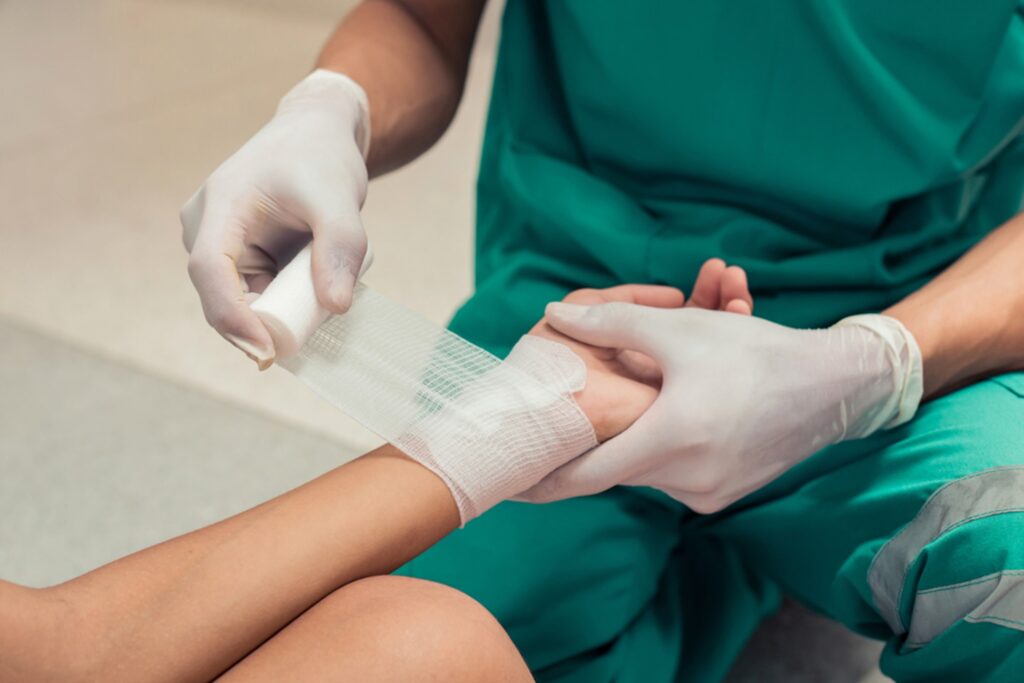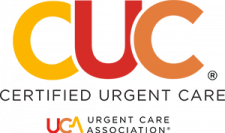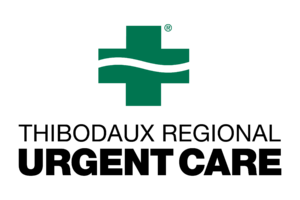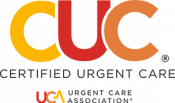Each year, thousands of people experience burn injuries.
While many can be treated at home without medical attention, nearly 450,000 burn-related injuries require medical treatment annually across the United States. Of that, about 3% are categorized as chemical burns.
Differing from other burn types, chemical burns are caused by various corrosive chemicals harmful to the body.
Burns are categorized into three levels of severity, from first-degree to third-degree, and should all be taken seriously and handled with timely and effective treatment options.
If you believe that you or a loved one have sustained a burn caused by a harmful or household chemical, understanding what it is and what to do for a chemical burn is critical to mitigating long-term side effects and treating it effectively and promptly.
Let’s discuss chemical burns in more detail, including what to do after you sustain one.
First, What Is a Chemical Burn?
A chemical burn, or caustic burn, is an injury to the skin, eyes, mouth, or internal organs caused by chemicals harmful to humans upon contact. These chemicals are often classified as “corrosive.”
Chemical burns can happen anywhere chemicals are present. From at home or in the workplace to out in public or at school, chemicals are found everywhere, and direct contact with some can cause serious harm and even death if not handled properly and an accident occurs.
The most common types of chemicals that often lead to chemical burns include
- Bleach
- Ammonia
- Toilet bowl cleaners
- Tooth-whitening products
- Metal cleaners
- Pool chlorinators
- Paint thinner
- Gasoline
- Battery acid
As with other types of burns, chemical burns are categorized into first, second, or third-degree burns based on the severity of the condition.
Signs and Symptoms of a Chemical Burn
While most chemical burns happen on the face, eyes, arms, or legs, they can occur on any part of the body.
Symptoms of chemical burns include
- Redness
- Swelling
- Irritation or burning in the affected area
- Pain or numbness
- Blisters or dead black skin
- Vision changes, especially if a chemical enters the eye
- Cough
Less common yet severe symptoms of a chemical burn include
- Headache
- Fever
- Faintness, weakness, dizziness
- Low blood pressure
- Seizures
- Muscle twitching
- Headache
- Irregular heartbeat
- Shortness of breath
- Severe cough
- Cardiac arrest
In rare instances, chemicals can penetrate the body, causing severe tissue damage.
If you experience a chemical burn of the mouth or throat or one that is causing severe, life-threatening symptoms, call 9-1-1 right away.
What to Do After a Chemical Burn
If you experience a chemical burn, you should do the following immediately after contact:
- Remove and dispose of clothing or jewelry contaminated with the chemical.
- Flush the chemical off the affected area with cool water for at least 10 minutes. If dry chemicals have burned you, wipe off any remaining chemical residue before rinsing. You must wear gloves or use a towel or cloth to brush it off to avoid getting more chemicals in direct contact with your body.
- Cover the affected area with a sterile bandage or a clean cloth. Avoid using soft cotton coverings, as they could stick to or harm the burn. Wrap the burn loosely to avoid putting pressure on damaged skin.
Other treatments that help heal your chemical burn include
- Applying a cool compress in 5 to 15-minute intervals to relieve pain and reduce swelling.
- Taking an over-the-counter pain reliever.
- Cleaning the wound daily with mild soap and water to prevent infection
In severe cases, physicians may prescribe a topical or oral antibiotic. In rare cases, surgery may be required.
Timely Treatment for Your Chemical Burn
At Thibodaux Regional Urgent Care, we know how painful and scary a chemical burn can be, especially if you are experiencing symptoms consistent with a second or third-degree burn.
We also recognize how crucial it is to get your chemical burn treated immediately no matter what degree you think it could be.
If you or a loved one have experienced a chemical burn, urgent care is the answer, and we are here to help you now with expert treatment for your burn.
We are open seven days a week with no appointments necessary. Simply walk in today to get the care you need now. Don’t delay; your life depends on it.




